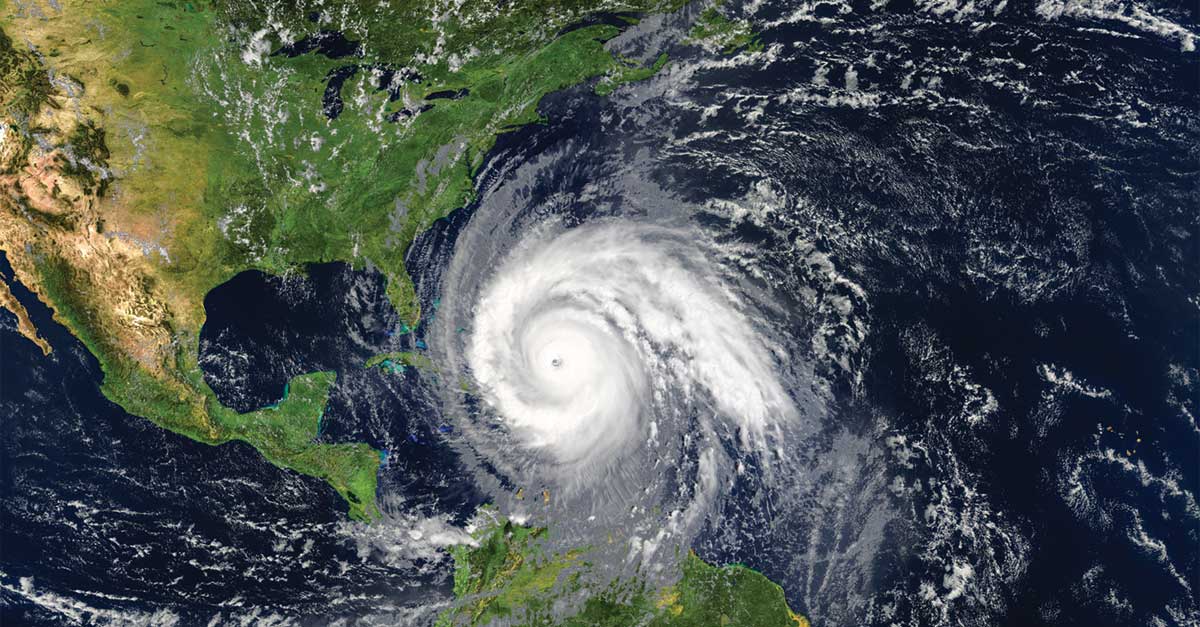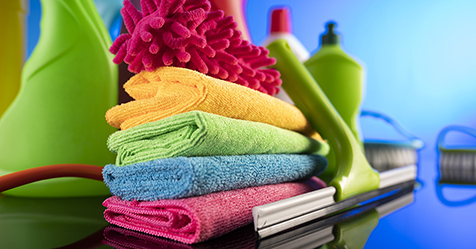Many businesses think of summer as a slower, more relaxed time of the year. But summer can be deceiving as it marks what can be one of the most serious and stressful times of the year for business owners and facility managers—hurricane season.
The numbers are staggering. From 2019 to 2021, there were 56 weather and climate disasters in the United States—including hurricanes—with losses greater than US$1 billion, according to the National Oceanic and Atmospheric Administration (NOAA). The U.S. experienced an annual average of 17 weather and climate disasters from 2017 to 2021, with 20 separate billion-dollar disasters in 2021 alone, NOAA found.
While we all hope for a calm and uneventful hurricane season until it ends on November 30, it’s crucial that we remain prepared and vigilant in the face of these storms. Hurricane season brings the potential for severe weather conditions including strong winds, heavy rains, and ocean surges. Whether it’s your first season or your 20th season maintaining a facility in a hurricane zone, continuous review on how to prepare for one of these catastrophic weather events can mean the difference between minor damage or major destruction for your business. Each year we add a little more to our knowledge of hurricanes and better understand just how unpredictable and destructive their power can be.
The following three resources— knowledge of hurricane myths, the most common types of hurricane property damage, and tips on hurricane preparedness—can help keep you and your property safe this storm season.
Common hurricane myths
- Storm surge versus high winds: Although many people think of intense winds as the main threat of hurricanes, it’s water that is really the most destructive force. Coastal storm surges and inland flooding from heavy rains are serious dangers to keep top of mind.
- Hurricane intensity: The Saffir-Simpson Hurricane Wind Scale (the 1 to 5 category rating) measures maximum sustained wind speeds, but it does not indicate the true scale of danger you face. Specifically, it does not account for dangers like storm surge, rainfall, or area of impact.
- Probable path: Focusing on the center of the cone of a hurricane’s projected path downplays the impact of a storm. The National Hurricane Center’s cone of uncertainty shows the probable track of the center of the storm but not the actual extent of its reach.
Common types of hurricane property damage
- Roof damage: Water intrusion, gutter damage, and metal roof panel destruction are the most common types of roof damage. The wind can blow away metal canopies and tear apart modified materials.
- Interior damage: A powerful storm can tear doors from their hinges and send debris flying through windows.
- Structure and foundation damage: Extremely powerful wind gusts can shift a building and leave cracks in the structure or foundation.
- Equipment damage: Hurricanes commonly damage HVAC units, generators, and various appliances.
- Utility damage: Hurricanes almost always damage infrastructure including power lines, internet connections, water systems, and vital power grid components.
Top hurricane preparation tips
- Install surge protection: Power surges are unpredictable and can severely damage computers and appliances. Adding a power surge protector to your electrical panel and using power strips with built-in surge protectors can go a long way in helping to protect your property.
- Seal off windows and doorways with plywood: Using plywood is the most practical method for protecting these openings.
- Use sandbags strategically: Sandbags won’t completely prevent flood damage, but they can divert floodwater away from your business if placed in the right spots. They can also hold down plastic sheeting or reinforce plywood.
- Secure outdoor items: Anything left outside has the potential to become a missile, so it’s important to bring in or secure outdoor items, like trash cans, tables, and chairs.
- Prepare an emergency kit: If you have an important reason to remain at or near your business, include fresh water for drinking and sanitation (one gallon per person, per day), several days’ worth of nonperishable food items, a flashlight, a first-aid kit, and a mobile devices charger. Don’t forget to pack extra batteries.
- Understand your property insurance: Check your policy or call your agent well in advance of hurricane season to discuss hurricane preparedness and determine if you need additional coverage.
Preparing for hurricane season can seem overwhelming, but there’s much you can do in advance. Plan ahead using the insights provided above to stay as safe and protected as possible for this hurricane season and those in the future.




